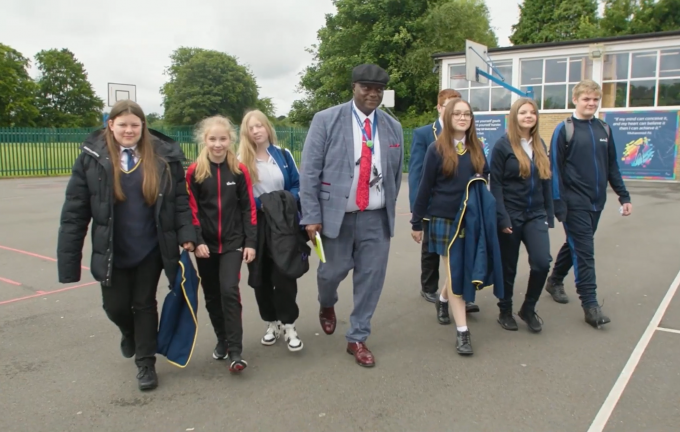Drapers’ Maylands: A school founded on Thrive
4th July 2025 | Blogs | Case Studies | Thrive Schools of Excellence
Discover how Drapers' Maylands Primary School placed emotional wellbeing at the heart of its culture from day one. Serving a community with high levels of need, the school has created a calm, focused and inclusive environment where children are thriving. Plus, to recognise its impact on pupils' mental health and wellbeing, Maylands has been recognised as a Thrive School of Excellence.

Trust director reveals the strategy behind 30% behaviour improvement
1st July 2025 | Blogs
Trust Director reveals how Three Rivers Academy's fresh SEMH approach delivered 30% fewer behaviour incidents, better attendance, and stronger staff confidence.
_680.jpg)
Apprentice spotlight: "I'm more confident and better equipped to support children's wellbeing”
30th June 2025 | Blogs
Amy Trice, Pastoral Lead and Cover Supervisor at Southwater Infant Academy, shares her experiences as an apprentice on the Thrive Wellbeing Specialist Teaching Assistant Apprenticeship programme.

Groundbreaking project launched to boost children’s mental health across Sunderland
27th June 2025 | Blogs
A groundbreaking new project aimed at transforming the lives of children in Sunderland has been launched at Christ’s College in Pennywell, thanks to more than £320,000 in funding from SHINE Sunderland.

How Meridian High School transformed behaviour, attendance and culture
20th June 2025 | Blogs
Meridian High School in Croydon shows what's possible when you put student wellbeing first. Facing challenges like poor attendance and difficult behaviour, they used the Thrive approach to support students' social and emotional development. The results? 17% better attendance, 15% drop in persistent absence, dramatically improved behaviour, and their first Ofsted 'Good' rating in over 15 years. Students who once struggled now believe in themselves, staff feel more supported, and the whole school community has been transformed.
_680.jpg)
Apprentice spotlight: “I’m learning so many different things”
19th June 2025 | Blogs
Carlene Street, Pastoral Manager at Fulbrook School, shares her experiences of the Thrive Wellbeing Specialist Teaching Assistant Apprenticeship.

Apprentice spotlight: “My way of managing behaviour has changed forever”
19th June 2025 | Blogs
Assistant Head Kate Pirie shares how enrolling on the Thrive Wellbeing Leadership Apprenticeship is transforming her approach to behaviour management.

Meeting the mental health challenge in secondary schools
13th June 2025 | Blogs
Rising anxiety, disruptive behaviour and staff burnout are putting pressure on secondary schools. Discover what’s driving the surge in SEMH need - and how schools are responding with strategies that work.

Helping autistic pupils navigate transitions: Preparing for the new school year
10th June 2025 | Blogs
Laura Nicholson, Practice & Innovation Developer at Thrive and parent of an autistic child, shares why transitions can be particularly challenging for autistic pupils - and offers practical strategies to support them as they move into the new academic year.
_680.jpg)
Landmark study confirms behaviour, attendance and staff wellbeing boosted in Thrive schools
2nd June 2025 | Blogs
The clearest evidence yet that Thrive’s social, emotional and mental health (SEMH) interventions lower pupil exclusion and absence rates has been revealed in new large scale independent research.
